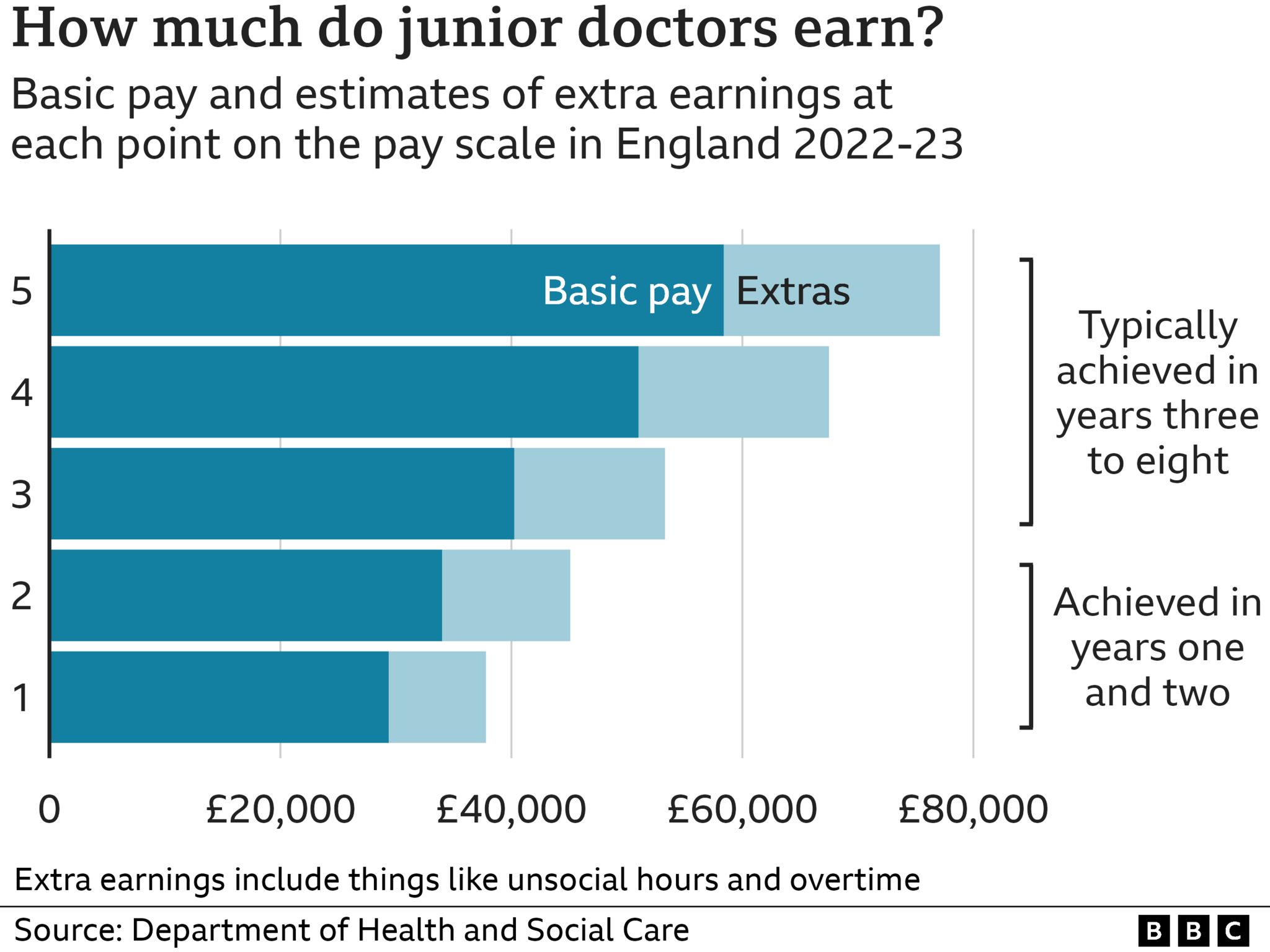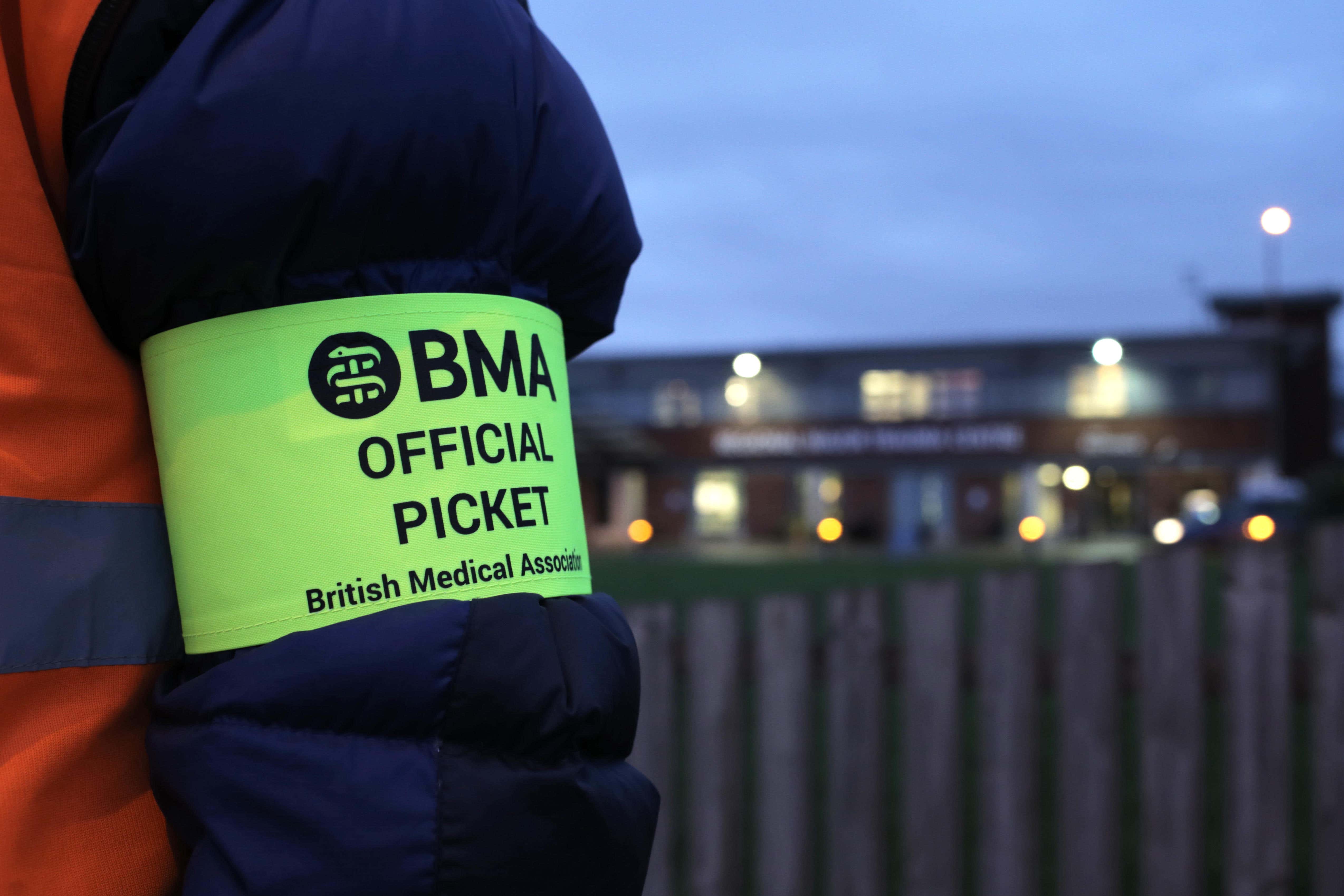How much do junior doctors (JDs) earn?
Their salary range is £29,384 to £58,398, depending on experience. However these figures do not incorporate bonus pay for out of hours working and oncall commitments. Allowing for those the average is above £50k.

So what’s the problem?
The BMA is the doctors union. It is asking the government to reverse what they say is a real-term pay cut experienced by the doctors since 2009.
To rectify this, the government would need to award doctors a 35 per cent increase for 2022-23, according to the BMA.

So. Is it just about money? Partly. It is also about how they feel they are perceived in the modern NHS, especially a feeling of lack of respect.
Here is a summary of the real reasons why are junior doctors are striking.
1. Debt – after on average five years of medical school, they then have two further years of foundation training (F1 and F2). I.e it’s a very long haul with huge debts incurred during the undergraduate years – often over £100k.
With that debt, and the salaries above, they feel they cannot live as they wish, especially with the cost of living crisis.
2. Other colleagues on more pay – they work shoulder to shoulder with Physician Associates (PAs) and Advanced Clinical Practitioners (ACPs) who do similar work but start on £37k per year – having done a two year degree.
Medical apprenticeships – also this year a new type of training for a doctor, called a medical apprenticeship, is starting. They will be training on the shoulders of other doctors as an apprentice, and be paid. Many JDs feel this devalues their medical degree.
3. ‘Infantilisation’ – in their early years (especially in first two years as F1s and F2s) they feel ‘infantilised’ and confused in that they are:
- not given enough responsibility and merely as act as scribes etc for consultants, when consultants are there (5 days a week, daylight hours only) – i.e. they provide a 7 day service (7DS) .. but ..
- not well supervised by consultants, when they are not there (outside daylight hours, and weekends) – i.e consultants do not.
4. Out-of hours working, lack of support and loss of ‘the firm’ – even though they work on average 48h a week, they work a disproportionate amount of out-of-hours work (e.g. 1 in 3 weekends and nights). And as stated above, they are often not supervised properly at this time by senior doctors.
Before the reduction in JDs hours, there was a concept of a ‘firm’. This meant an individual JD would work with a named registrar and consultant. Ie you were the ‘F1 (previously ‘house officer’) for Dr/Mr X (consultant) for 6 months – and just looked after his/her patients. Now a JD is more loosely attached to a type of medicine (e.g. cardiology) and a group of consultants for 4 months. And the bonding and mentorship is largely absent. This, combined with fact that so much of the JDs work is out of hours (when the consultants are not there), leads them to feeling lost, and not supported or appreciated.
5. Other countries – doctors in other countries (e.g. Australia) have better working conditions and pay.
6. Long-term – however, even though it is true that their initial salaries are not great, they are over-focused on these current issues. And so they do not see the long-term. I.e. after 5 years training as a JD to be a GP, or 10 years to be a hospital consultant, they will earn 90-120k per year, plus almost unlimited private practice – for 30-35 years. And they will retire on a platinum level pension (that the government has just improved in the latest budget).
7. Perception by media (and public) – junior doctors are also aggrieved by how they (and senior doctors) are portrayed by the media (TV, radio, internet, social media) and hence the public, e.g. striking for more money, despite the public finding it hard to get a GP appointment, over 7 million people on waiting lists for surgery, a lack of a weekend and bank holiday service, and senior doctors being focused on private practice etc. On the other hand, junior and senior doctors do little to change that image, giving them the appearance of an unhelpful privileged elite.
Summary
We have described the real reasons junior doctors are striking – what they want. We hope it has been helpful.
Last Reviewed on 13 March 2024
